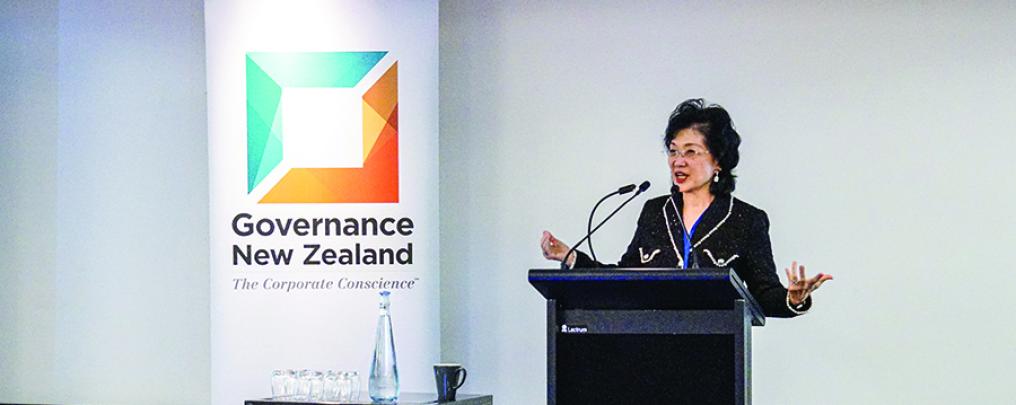
Charitable organisations – Registration of a charity in the form of a company limited by guarantee
Sunday | 22 December 2019
Susan Lo FCIS FCS(PE), Executive Director of Corporate Services, Tricor Services Ltd, reviews the interpretation of a charitable organisation in Hong Kong, and explains the benefits and stipulations of forming a company limited by guarantee for charity purposes.
Introduction
A non-governmental organisation (NGO) or a non-profit organisation (NPO) is frequently used as an alternative description for a charitable organisation. However, in Hong Kong not all NGOs or NPOs (collectively described as NPOs below) are recognised by the Hong Kong Inland Revenue Department (IRD) as charitable organisations under Section 88 of the Inland Revenue Ordinance (IRO). This article examines how the IRD defines a charitable organisation (charity) in Hong Kong, the advantages of forming a company limited by guarantee (guarantee company) for charity purposes, the key statutory requirements relating to the registration of a guarantee company as a charity in Hong Kong, and the ongoing administration of such.What constitutes a charity?
A charity is not exactly equivalent to an NPO, but a charity must be an NPO. According to a tax guide issued by the IRD, a charity must be established for public benefit and for purposes that are exclusively charitable according to the law. Charitable purposes are classified into four areas:- relief of poverty
- advancement of education
- advancement of religion, and
- other purposes of a charitable nature beneficial to the Hong Kong community.
Charitable purposes
- relief of people living in poverty
- relief of victims of a particular disaster
- relief of sickness
- relief of the physically and mentally disadvantaged
- establishment or maintenance of non-profit-making schools
- provision of scholarships
- diffusion of knowledge of particular academic subjects
- establishment or maintenance of a church
- establishment of religious institutions of a public character
- prevention of cruelty to animals, or
- protection and safeguarding the environment or countryside.
Non-charitable purposes
- attainment of a political object
- promotion of the benefits of founders or subscribers
- provision of a playing field, recreation ground or scholarship fund for employees of a particular company or industry, or
- encouragement of a particular sport such as angling or cricket.
Why use a guarantee company as a vehicle for a charity?
An organisation wishing to set up as a charity is subject to the jurisdiction of the courts in Hong Kong. The following are the common types of structure:- a trust
- a society established under the Societies Ordinance (Cap 151)
- a guarantee company incorporated under the Companies Ordinance (Cap 622)(CO), and
- a statutory body incorporated under a specific Hong Kong Ordinance.
Registration of a charity in the form of a guarantee company
Registration of a charity in the form of a guarantee company is a two-step process. For the purpose of incorporating the entity, the draft incorporation statutory returns and the draft articles of association, together with the appropriate incorporation and business registration fees, should be submitted to the Companies Registry (CR). There are no e-incorporation services available for such applications as the Registrar has to review the draft articles of association before giving approval for the incorporation. To have such an entity incorporated typically takes four to five weeks, even for a very smooth case. An entity wishing to seek tax exemption status accorded by Section 88 of the IRO should submit to the IRD an application prior to or immediately after the entity has been incorporated. In addition to an application letter, the entity should also submit its certificate of registration, articles of association, list of directors, financial statements (if available) and list of the activities planned for the next 12 months from the date of establishment or date of application, as appropriate. In case the application is made prior to the entity’s incorporation, the draft articles of association and the list of proposed directors should be submitted instead. The IRD will review the entity’s articles to ensure that the following criteria are satisfied:- stating precisely and clearly the entity’s objectives
- limiting the application of the entity’s funds towards the attainment of its stated objectives
- prohibiting distribution of the entity’s income and properties amongst its members
- prohibiting members of the entity’s governing body (for example, directors) from receiving remuneration
- specifying how the remaining assets should be dealt with upon dissolution (normally to be donated to other charities)
- avoiding conflict of interests in contract, arrangement and transaction, and
- requiring the keeping of sufficient records of income and expenditure (including donation receipts), proper accounting books and compilation of annual financial statements.
General compliance and annual filing requirements for guarantee companies
Under the CO, the statutory requirements that need to be observed by a guarantee company are similar to those applicable to a private limited company. Private limited company. Set out below for reference are some basic compliance obligations for a private limited company, which also apply to guarantee companies, except for those provisions applicable only to a guarantee company:- maintain a local registered address
- appoint a resident company secretary (individual or body corporate)
- appoint at least one director who is a natural person (over 18 years old)
- have at least one shareholder (individual or body corporate)
- notify the CR of any changes in the company’s particulars recorded in the CR
- renew its annual business registration
- maintain proper accounting records and prepare annual financial statements
- appoint a practising accountant to audit the annual financial statements
- hold an annual general meeting at which the company’s financial accounts are adopted
- file annual returns with the CR, and
- submit a profits tax return together the annual audited accounts to the IRD.
- must maintain at least two directors, and all of its directors must be natural persons
- may apply to the CR for a licence to dispense with the word ‘Limited’ or ‘有限公司’ if the Registrar is satisfied that its objectives are restricted to promoting commerce, art, science, religion, charity, and so on, and its profits are all applied to promoting objectives and no dividend payment would be made to its members
- must submit an annual return to the CR together with certified true copies of the relevant financial statements, directors’ report and auditor’s report within 42 days after the annual return date, which is nine months after the end of the company’s accounting reference period, and
- need not pay the business registration fee or file a profits tax return with the IRD (if it has been recognised as a charity).


